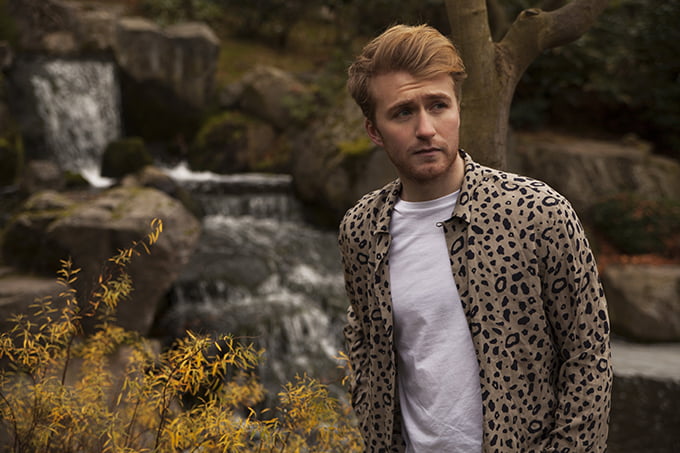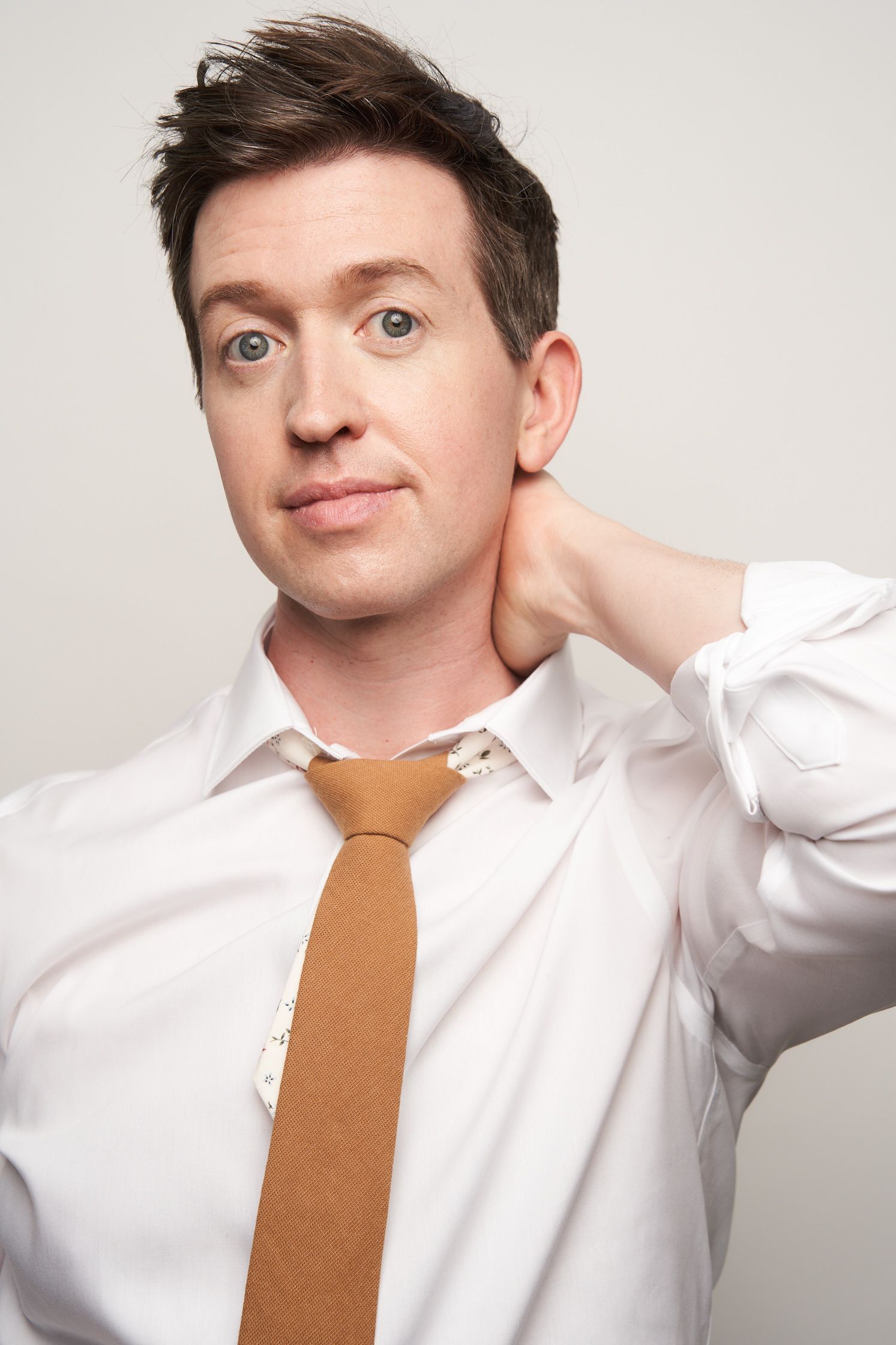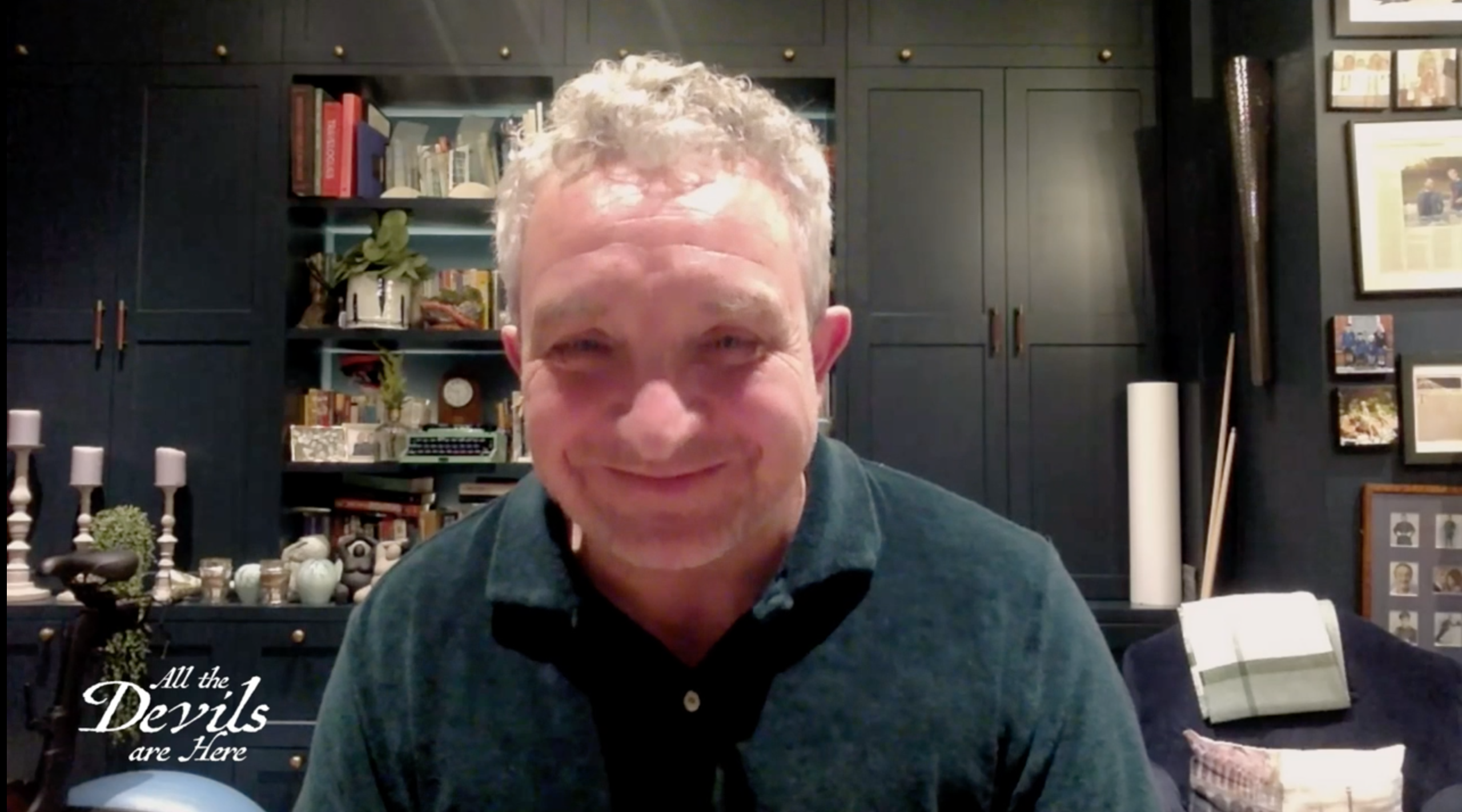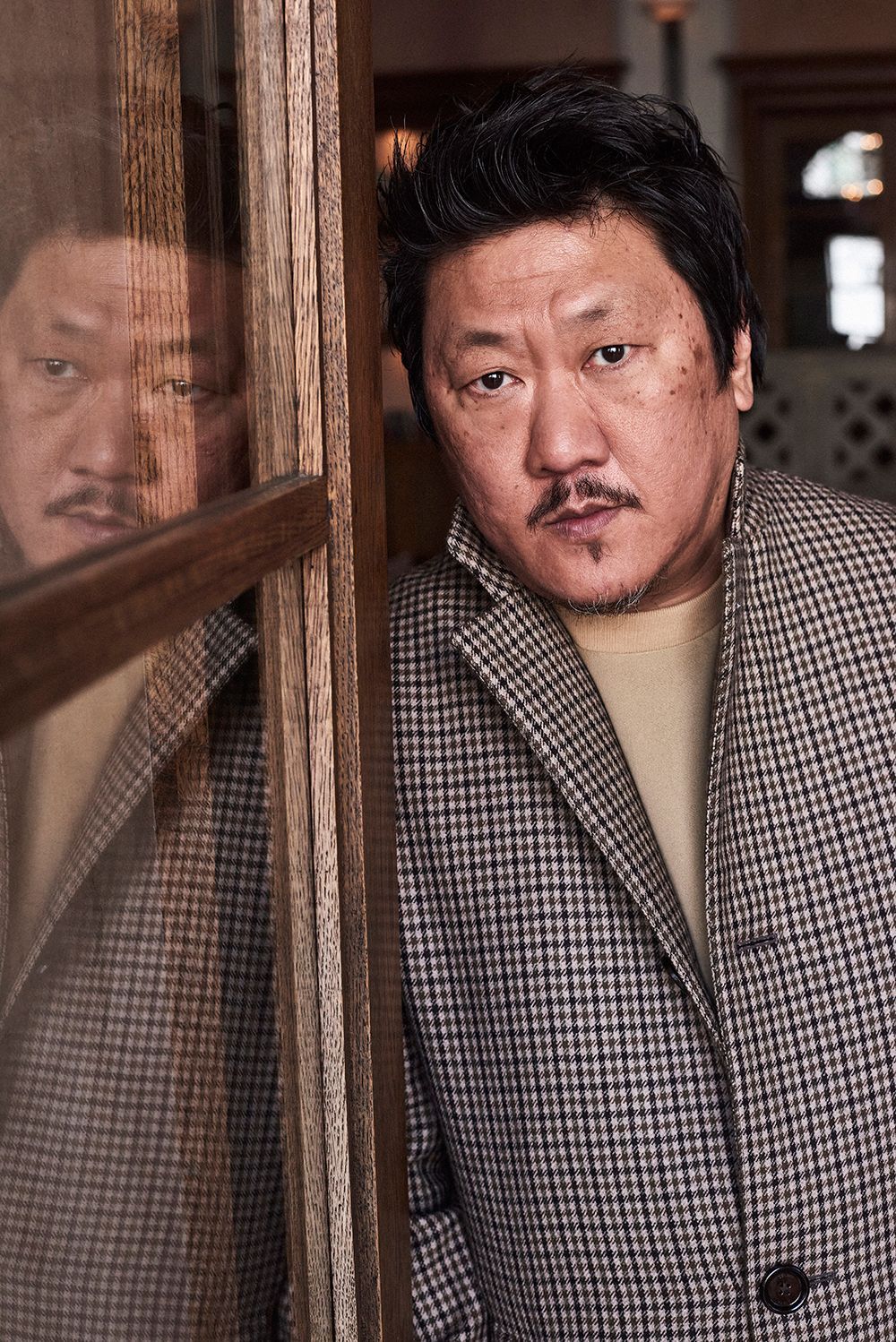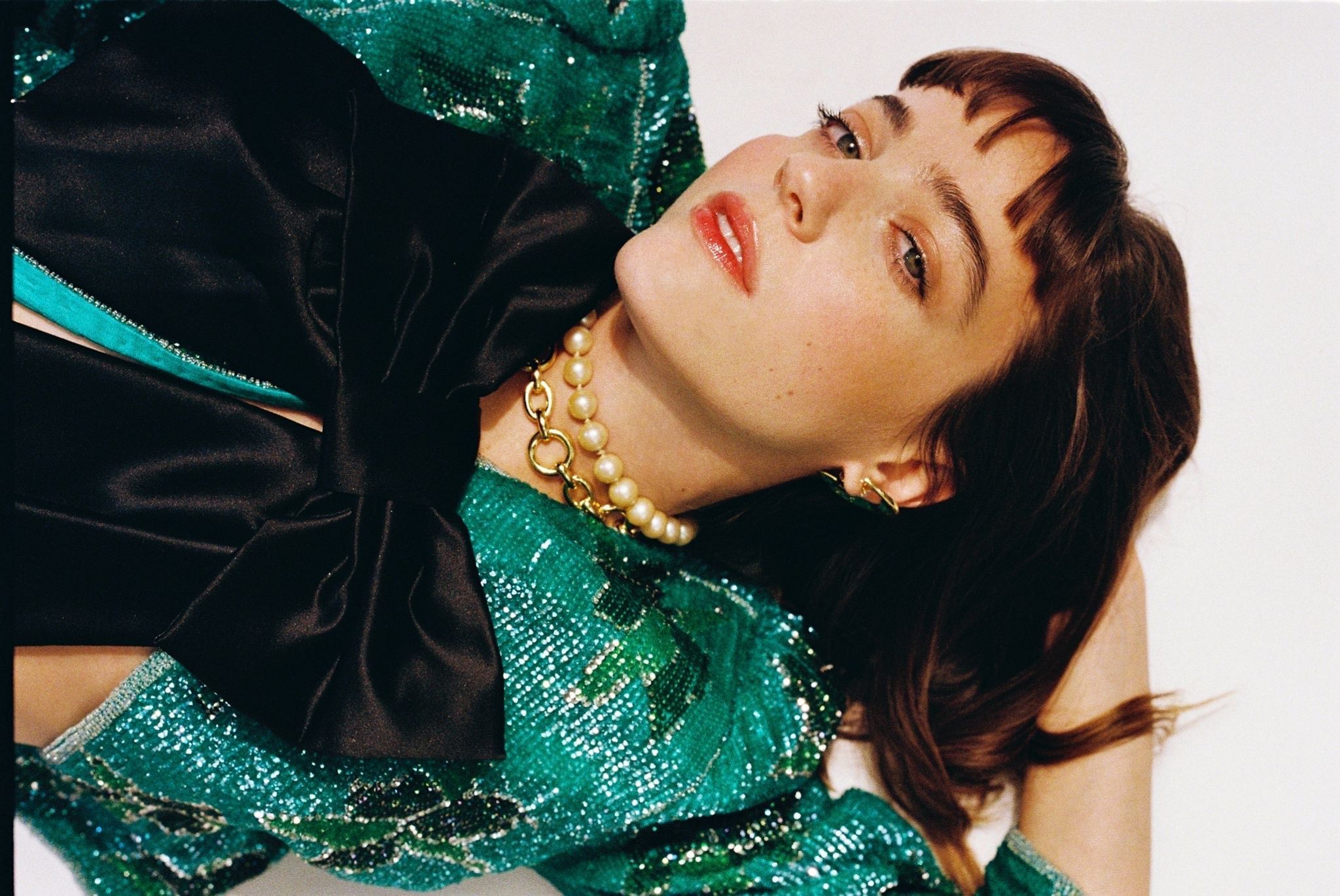
Jordan Waller, may be best known for playing Lord Alfred Paget in Victoria. He is a man of many words and what he has to say is valid. It is not only relevant to our ever-changing society, but challenges people’s interpretations of ‘normal’.
Similarly, playing the role of Queen Victoria’s best friend and Prince Albert’s Equerry whilst also being gay in an era that believed homosexuality was a crime, is in itself a challenge. Waller’s portrayal of this captivating storyline has kept viewers on the edge of their seats and we had a chat with him to discuss Victoria’s first gay kiss, family set-ups and his plans for the future.

Why acting?
Why acting… because I’m a terrible attention seeker. I’m really interested by people and what motivates people. I’ve been raised by a gaggle of lesbians, my mum is a lesbian and I don’t have a dad so I’ve always been intrigued as to how people interact and what makes people do the things they do. I think perhaps not having a father has often made me analyse why I am the way I am. I think that started off a real chain reaction in a need to understand everything and everyone. Which is mad, but probably why I do what I do.
People are complex, we all have different versions of normal and some may say your upbringing was quite complex in itself, how would you share your version of normal with others, you’re writing something aren’t you?
I think words like normal and natural are some of the most pernicious in the the English language because they set a completely idealised and unrealistic standard to which we are all supposed to aspire. Part of the reason I’m writing a dark comedy sitcom about my mother’s death and how it’s difficult to mourn in a LGBTQ family, how it can throw questions of identify into relief, is because I wanted release many people from alternative set ups from that word, normal. I think it’s important that you show people, for example who have one parent, that people in these alternative set ups are just as normal in their uniqueness. It is a really powerful message because it challenges something that I feel, even today, if you don’t have a mother and a father you are somehow not whole or not complete and that can be one of the reasons some people really struggle with understanding their family. It’s about deconstructed that term and that’s what I hope my story in whatever form I tell it could lead to for other people.


Could it be compared to another scenario like divorce, if you somehow divorce it can be seen as a failure…
That’s such an interesting point, no completely, you know when any relationship ends you can think that somehow you’ve failed and the fact is that it completely undercuts the beautiful thing you have created and shared together. Although, it’s come to an end, I’ve experienced a lot of break ups from my mother’s side of things, and they are difficult but it doesn’t devalue the incredible experiences and the creative experiences. That’s how I came into the world. It doesn’t undermine you. I’ve never thought of it in terms of divorce, but I completely agree.
How do you think then that your upbringing has shaped you?
Well apart from all of the crap about attention seeking and being an actor, I think in many ways my upbringing matured me at a very young age. There are good things and bad things that are concomitant to that. I would say that made me into an incredibly analytical person, but I would also say a neurotic person at the same time. I think that anybody that has to face difference in some form can really struggle or really flourish. I realised this at a very young age, when I was bullied at school. By my mum being gay, I was accused of being gay as that was the correlation made in the 90’s, I basically took a bit of remove from my friends who knew I was different. While I did feel like a boy, like a normal way, and I was in many ways, but my friends were experiencing something different to me and that they were normal and I was abnormal. It gave me a chance to analyse then from a far which is probably great creatively speaking, but also made me a bit insecure about my set up. What I had experienced up to that point was no longer normal. I think those are the two big effects on me and the way I am. Analytical and Neurotic.


Is there a movement towards not celebrating difference and just accepting it is what it is?
Yeah, but in a weird way as well now, I would never really want to have a normal upbringing. It’s been great, it’s the basis of a lot of my creative work and it’s shaped me into who I am. Weirdly, I’m a bit addicted to the traumatic element of it. I think there’s something brilliant about being a bit of a weirdo or removed from popularity. It’s what makes you unique and vulnerable that becomes your currency when you grow up.
Tell me about your route into acting
In terms of my training, I was very lucky. I wanted to go to drama school but my mother’s brother forced me into an academic route first in order to have a backup. So from Bristol, I was fortunate to go to Oxford University where I studied French and it opened my eyes up to the big city. I felt like Dave in the Big City at times. I met Londoners and people from all around the world coming from a bizarrely parochial upbringing. I was very lucky to picked up then by an agent and in terms of my craft it has always be honed on the job. I was casted in Jane Austen’s Love and Friendship in a small role and then Victoria. I’ve always been learning while I go really. I’ve had the pleasure of working with some phenomenal talents in my tiny career thus far and I was told by Dame Diana Rigg just to copy the best that you see. So I just observe and do as they do. It’s always about learning, you are never finished.

What would be your wise words for aspiring actors who don’t go down the traditional route of schooling?
Well you don’t have to go down the schooling route, my advice to any actor is to make your own stuff. The fact is, everyone has an iPhone now, the camera is good enough. Film stuff with your friends, write, create something and then put it up online. I think that is the best way to start out and then get an agent from there. You don’t have to do it formally, it’s fine to do it formally too if you want to.
If you had to choose somebody, who would be your favourite person that you’ve worked with so far?
My favourite man in the world, who I wish would be my father, is somebody called Alex Jenning. He should be given a knighthood soon I’m sure, he plays Leopold in Victoria. He is just the most divine man and I never stop laughing when I’m with him. He’s a brilliant actor as well, I’ve learnt so much working with him.
You play Lord Alfred in Victoria, researching him there isn’t too much, did this help or hinder your preparation for your portrayal?
It gave a certain artistic license, I was aware that Daisy Goodwin’s vision was somewhat deviating from the facts of history, but taking a truthful story which was this love affair that could have happened. Interestingly, I just saw a play yesterday called How to Win Against History which was based on another Paget, Lord Alfred’s grandfather who was written out of the family history because he was a cross-dressing theatre impresario in the late 18th Century. So, actually in the Paget family there was an LGBT presence. Who’s to say what the truth about sexuality is and how people necessarily would have interacted. I wouldn’t describe Alfred Paget as gay because they didn’t have the terminology for that, that would be a modern projection onto him. He just happened to be in love with a man and I think that can tell us a lot about we visualise sexuality today.

In Victorian times there is no evidence to say there were people who were gay, even though there will have been…
Totally, that’s a point. Peter Ackroyd made his book call Queer City and he said the only history of homosexuality is always through the negatives. The only evidence we have of homosexuality are through the records of people being tried for the sodomy laws. What he tries to do in this book is to revitalise history by basically suggesting everyone throughout history is in fact gay which is quite funny. But he makes a good point which is, well hang on how are we going to look at the facts here and should we take everything at face value. As has Oscar Wilde not been tried, we might never have known who he truly was. What is history, who cares?
How did you feel about portraying this character in that society?
I was a little anxious because I knew that it deviated from the facts of history and I was worried that the audience might groan and be irritated by what could be preserved as the bastardisation of history. But I was humbled by the wonderful reaction from everybody and all of my bubbling fears were totally allayed as soon as Drummond and Paget started eyeballing each other. It was great in the end, really really humbling.
There was a lot of hype around the kiss, were you nervous for the reception of fans about this?
I think that Daisy Goodwin crafted this love story in such a way that actually any fears I may have had about people grumbling because it was perfectly pitched. I was excited to have something more meaty to deal with.

What’s been your biggest achievement to date?
My biggest achievements to date are in the future.
What’s next for you?
I’ve got a film in Australia based on cannibals in the outback, that’s filming in January next year which is very exciting. I’m also pitching this series Son of Dyke to the BBC at the moment.
A few fun questions…
Christmas Dinner or Christmas Pudding
Dinner
Christmas or New Year
Christmas
Favourite Christmas drink?
Vodka, vodka is always the answer.
Worst present you’ve ever received?
Er, um, no actually I can’t say that because they’ll read it. Got to be careful because it’s all given to me from family.
The Victoria Christmas special, Comfort and Joy, airs on Christmas Day at 9pm on ITV.
Darkest Hour comes to cinemas on the 12th January 2018.
Interview Hannah Shin
@hkashin
Photography Stephanie YT
www.stephanieyt.format.com
Grooming by Sophie Moore using Bumble and Bumble
www.sophiemoore.co.uk

